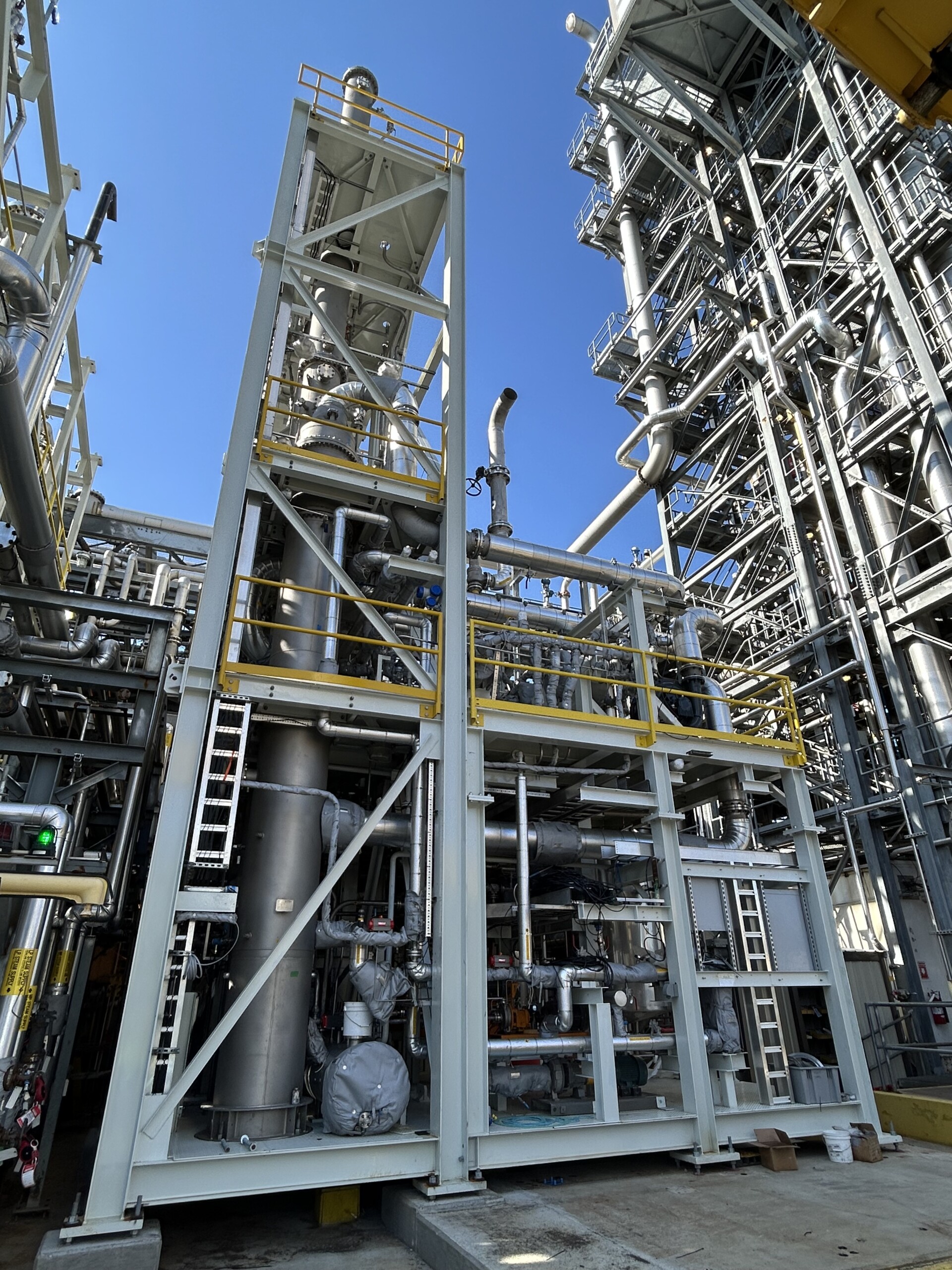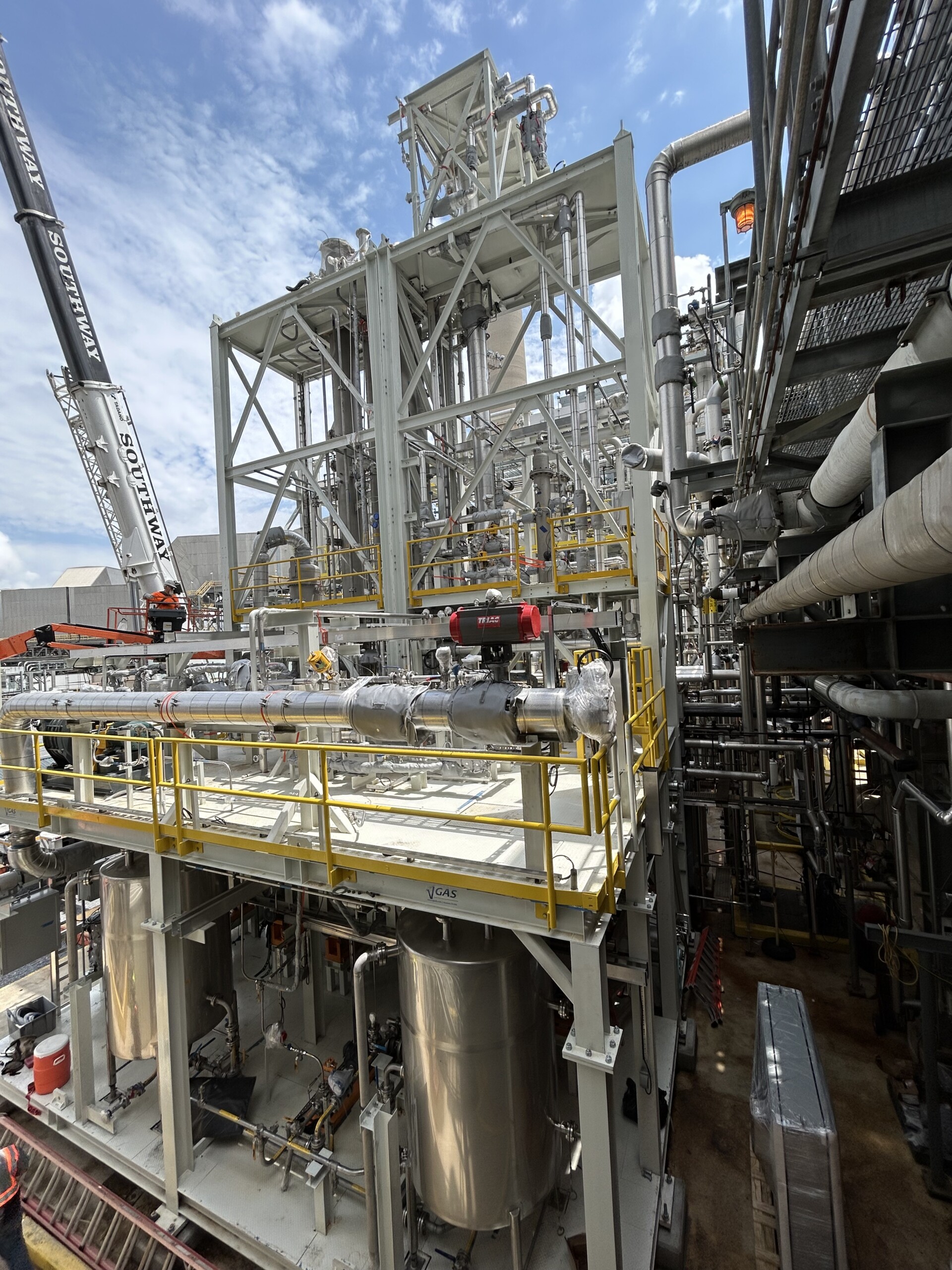A significant step forward in carbon capture is underway at the National Carbon Capture Center (NCCC), where KC8 Capture Technologies’ (KC8) advanced UNOGAS system – featuring the innovative UNO MK3 solvent process – has been installed for pilot-scale testing.
This leading-edge system is designed to capture 95% of carbon dioxide (CO₂) emissions from industrial sources like natural gas and cement plants. The UNOGAS modules were assembled in Houston, followed by final fit-up and thorough pre-delivery checks before shipment to the NCCC.
Now fully installed, the system is scheduled to begin rigorous testing in August. The six- to nine-month test period will evaluate the technology under actual flue gas conditions, accelerating its path toward commercial use.

KC8 received funding from the U.S. Department of Energy (DOE) to support this second phase of the UNOGAS project, which aims to demonstrate the commercial viability of the UNO MK3 technology in a real-world gas combustion exhaust setting
A novel solvent solution
At the heart of the system is the UNO MK3 carbon capture process – a catalytically enhanced potassium carbonate solvent that offers a high-performance alternative to traditional amine-based capture. It is designed to operate effectively in high-oxygen flue gas environments while supporting high capture rates, low energy use, and does not create any toxic emissions in the treated flue gas or CO2 stream.
The solvent’s unique chemistry allows it to efficiently separate CO₂ with few environmental and cost tradeoffs. Compared to conventional approaches, it uses less energy for regeneration and exhibits greater stability over time.
As one of the world’s premier carbon capture research facilities, the NCCC plays a critical role in advancing technologies like UNO MK3. By providing real-world testing conditions and expert technical support, the center helps bridge the gap between lab-scale research and large-scale deployment.
“Working closely with the KC8 team, our objective is to demonstrate the time-shifting ability of the MK3 solvent technology’s storage capability and to determine the most effective design for large-scale solvent storage,” said Tony Wu, NCCC principal engineer. “It’s always exciting and rewarding to collaborate with pioneering innovators working toward the same goal – to accelerate the development and deployment of groundbreaking carbon management technologies.”
Accelerating carbon innovation
The Phase 2 testing is part of a broader DOE-supported initiative to demonstrate next-generation carbon capture technologies that are practical, scalable and commercially viable.
The UNO MK3 system testing will be tested in a 5-10 tonne-per-day plant that captures CO2 from the combustion flue gas delivered by the NCCC’s natural gas testing system. It will be evaluated under both exhaust gas recirculation (EGR) conditions – approximately 7% CO2 – and non-EGR conditions of around 4%. The EGR rate represents approximately 35% recycling.

Benefits of the UNO MK3 process include:
- Up to 50% lower cost than traditional amine-based systems
- Low volatility and environmental impact (converts sulfur oxides and nitrogen oxides to fertilizer)
- Low energy use (less than 2.5 gigajoules per ton of CO₂ captured)
- Multi-contaminant capture with stable, non-degraded byproducts
A shared mission for impact
“Our mission at KC8 is to bring low-cost, environmentally safe, high-performance carbon capture processes to industries worldwide,” said Barry Hooper, chemical engineer and Chief Technical Officer at KC8. “We are fortunate to leverage the extensive carbon management expertise at the National Carbon Capture Center to help accelerate the commercial deployment of what we believe is the most sustainable, cost-effective, solvent-based carbon capture process available today.”
Operated and managed by Southern Company, the NCCC drives innovation in carbon management technologies by collaborating with technology developers worldwide to advance their carbon capture solutions toward deployment.

